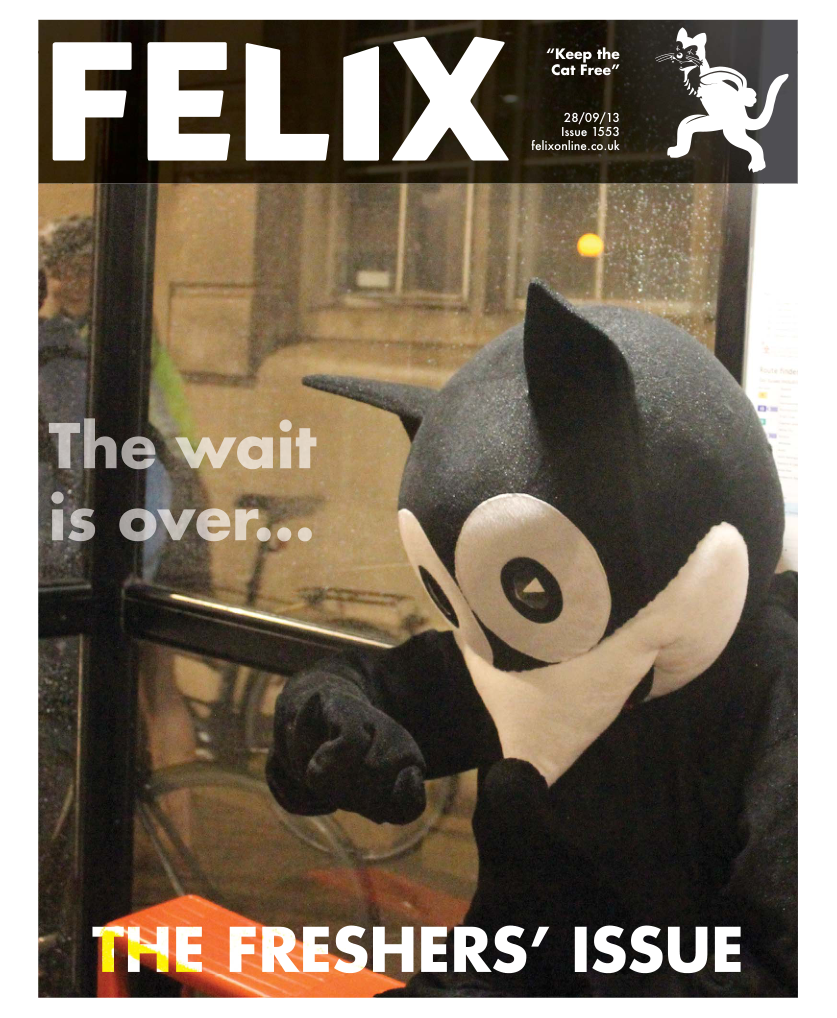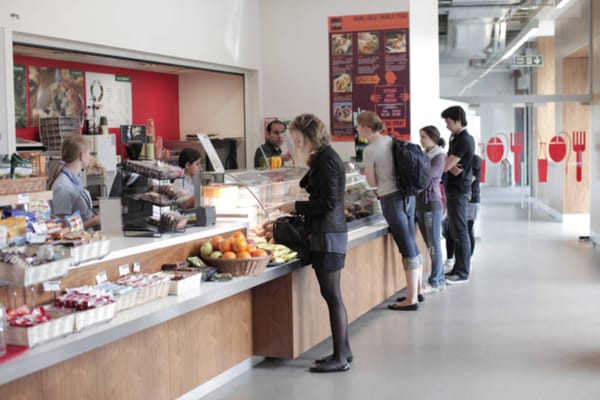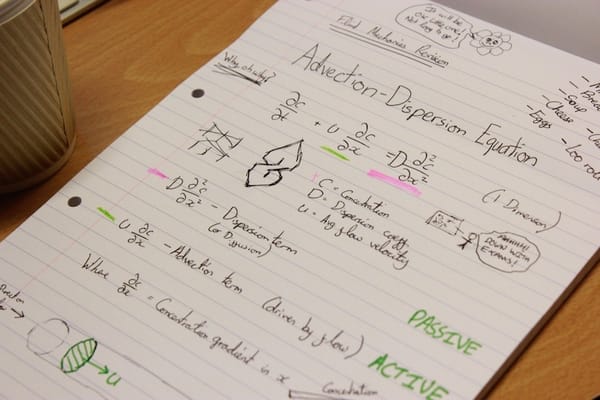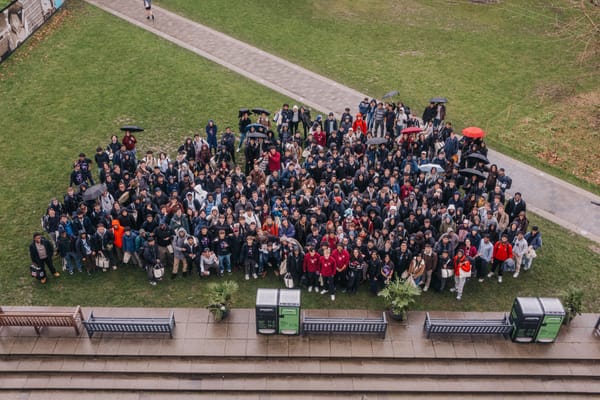University Rankings and what to (not) make of them
Shiladitya Ghosh briefs you on College's ranking prowess...
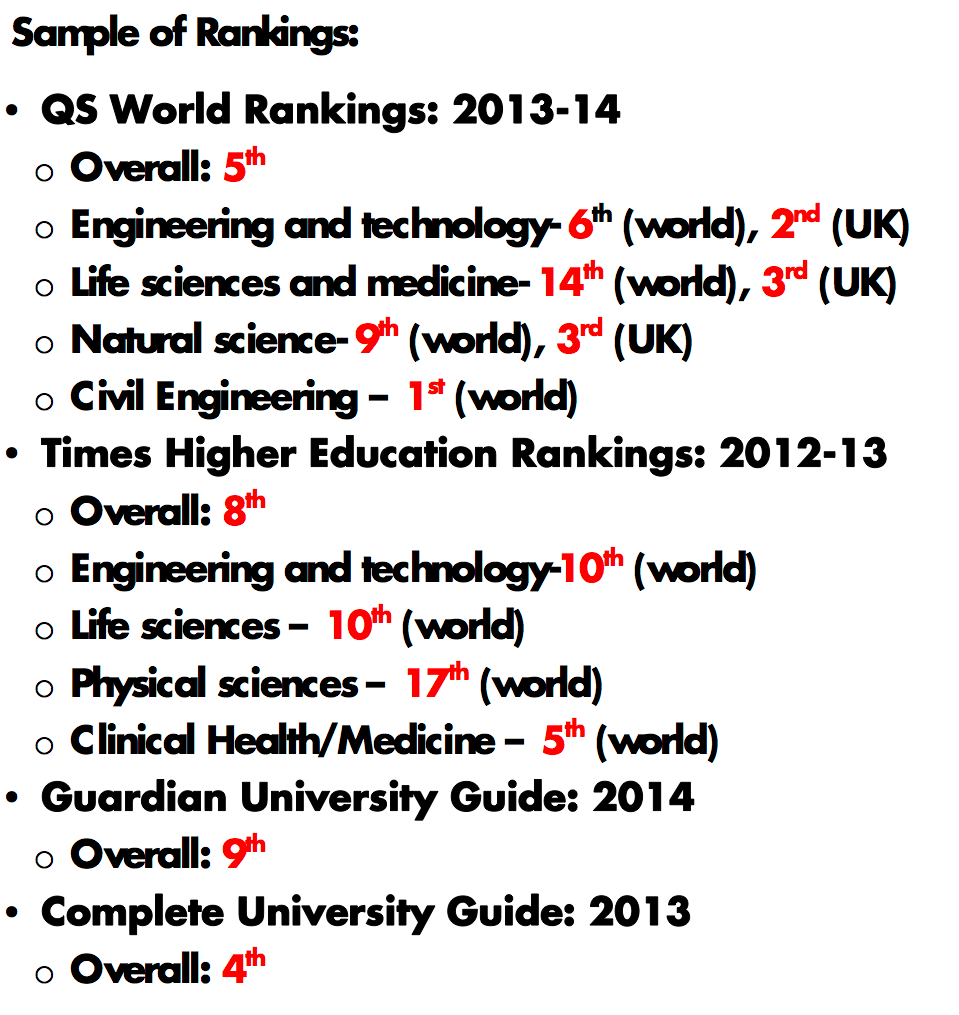
No matter who you are or where you come from, you are, to some extent, proud of this esteemed institution’s very high rankings on various scales and from a variety of scorers around the world. It helps that the QS League Tables just got updated earlier this month to show Imperial rising to its greatest heights ever – hats off to Civ. Eng., how does it feel to be on top of the world? – just as we all start/resume our college adventure. (A selection of up-to-date rankings is shown in a table if you want to feel good about yourself while you still can.) All summer, during and after waiting around for your offers and crapping your pants on the eve of Results Day, you’ve probably done your fair share of putting down UCL and tried to publicly believe that Oxbridge don’t know what they’re missing with you headed here. Furthermore, with the updated rankings showing just where we purportedly stand in the world’s grand scheme of things, you might have started to believe you’re something special, headed for The Chosen College, destined for greatness and buzzing to meet other whiz-kids/some legendary old people. You might expect to be herded into a factory of educational brilliance where you enter with AAAA and exit with a job at Google/JPMorgan like clockwork. You might expect to command awe and respect from your peers at other institutions just by telling them where you study. You might expect Imperial to have all the best facilities and most modern technologies implemented on campus and available for your learning benefit. You might expect that everyone around you knows just as much advanced mathematics and physics as you do. Of course, rankings are a vague and general measure of how well a university is doing in a broad sense. But, the above is not what these rankings imply, or are even necessarily a measure of. By the time you read this, you may already have figured that with such a diverse and international student body, not everyone has had a similar educational background. For instance, engineers may struggle with first-year Mathematics topics because they hadn’t taken Further Maths like you had, or maybe their country’s Maths syllabus wasn’t as content-heavy. Don’t ever mistake that for a lack of intelligence – they worked hard to get here, and are probably just as deserving as you. You will notice that criteria such as ‘Research Excellence’ and ‘Staff-Student Ratio’, prominent features in several ranking methodologies will hardly have any bearing on how your first few undergraduate years go. The generous college endowment and budgets will never really seem to be trickling down to furnish your lecture theatre (LT) with swiveling seats and touchscreen desks. For naming ourselves the Imperial College of Science, Technology, and Medicine, you will see sluggishness in unexpected places on the technological front – just keep track of how many months it ends up taking for every department to have a couple of LTs to finally be configured for AV recordings of lectures.
Could Imperial be argued to be the World #1 University for Undergraduates? Sure, it’s possible (though unlikely). But no one’s managed to agree on a set of standard criteria to quantify this. Maybe you can try.
You will come to realise that unfortunately, top jobs aren’t being prepared to be handed to you on a plate once you pass your degree. There are only a handful of those jobs to begin with – chances are you won’t be getting one if you sit around feeling entitled. That’s why we need, and have, regular Careers Fairs on campus, for you to find out that employers do like Imperial, but hailing from here isn’t enough to make the cut since they also like Oxbridge, LSE, the Ivies, etc. You have to do stuff. Partying twice every week will look doubly distasteful to employers if you don’t show you can handle responsibility and make productive use of your free time by contributing to a few Clubs/Societies during your time here. (Incidentally while I was writing this, Bloomberg just published an article saying Imperial graduates now have the best job prospects in the UK (89% employed within 6 months of graduation, ahead of Cambridge (85%)). These statistics, while very heartening and good to know, also perpetrate the myth propounded upon at the start of this paragraph. Just keep in mind that our seniors worked hard to get their jobs no matter how easy it sounds now, and you will have to do so to match up to their statistic.) You will come to grudgingly admit (at least to yourself) that in your year group there are people who are both smarter and better than you, who will effortlessly breeze through exams and coursework in their sleep while maintaining a social life, and there are also people slower than you who will have to put in long shifts after lectures at the library, poring over the lecture notes to understand things you thought were easy enough. You may identify with the latter group, and may come to know brighter and more admirable individuals at other colleges like UCL or even King’s, who will greatly trouble your self-esteem and make you wonder what you are doing here. But you have to remember, no one ever said you’re better than other people just because you’re in Imperial, and it’s not necessarily true at all. The fact that you’re here means that the College/Department admissions team thought you have great potential on top of your undoubted academic prowess. Don’t forget to be humble and keep developing yourself all the time. Take chances to learn from anybody and everybody. That’s why you’re surrounded by people who don’t necessarily seem all that amazing. It’s because they’re not amazing yet, but by the time they graduate, after they have interacted with similarly amazing people, they will be. And hopefully, so will you. Somewhat in contradiction, you will have to realise that studying a top-rated course in a top-rated college won’t automatically make you awesome, but people will expect you to be awesome and be doing awesome things all the time anyway. You will feel pressurised to make full use of everything available to you. Which is when you will start to doubt what you have around you: “hey come to think of it, I don’t really feel like I’m in the world #1 place for my course. It’s great but…#1? Really? I thought there would be more than this.” Reality is always underwhelming, isn’t it? Unfortunately, the hard truth is that the only major way you influence these rankings are through your National Student Satisfaction (NSS) survey (when you graduate), and how quickly you find a job upon graduation. Most of the score is contributed to by Postgraduate students and researchers at the College who are frantically churning out theses and papers, and to whom factors like ‘Student-Staff Ratio’ are a whole lot more important in the hunt for a supervisor. At the end of the day, it’s generally final-year Undergrads and more senior people who get to muck about with the ‘world-class’ facilities the College has, and it’s what they do that’s published to the world, and whose quality is judged to form the main basis of our world rankings. But all this doesn’t mean Imperial is a lousy place for an Undergrad to be at (though I did suggest to you earlier to feel good about yourself while you still could.) You’re going to spend between 3-6 years here; most Postgrads are only here for either 1 or 4 years, plus you outnumber them 3:1 – it would be foolish for the College to fail to cater to you and your abilities…and no one’s saying it does. This article merely serves to explain to you what the currently-published ranking systems do and do not imply about your Undergrad experience at Imperial because they do not factor in much about Undergraduates. There simply isn’t any real ranking system for universities from an Undergraduate perspective out there (or at least one that’s not exclusive to US colleges) so we can’t say for sure. Could Imperial be argued to be the World #1 University for Undergraduates? Sure, it’s possible (though unlikely). But no one’s managed to agree on a set of standard criteria to quantify this. Maybe you can try.

